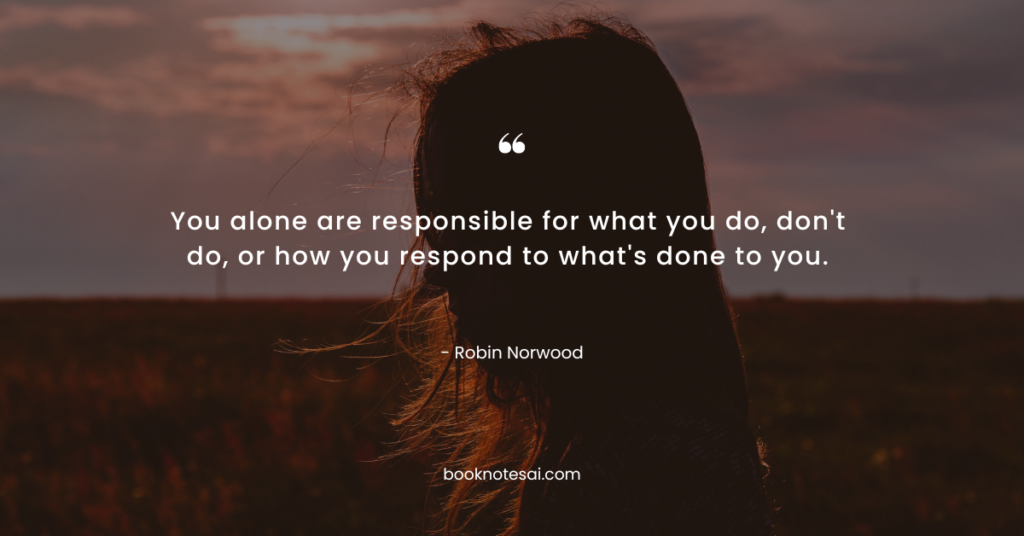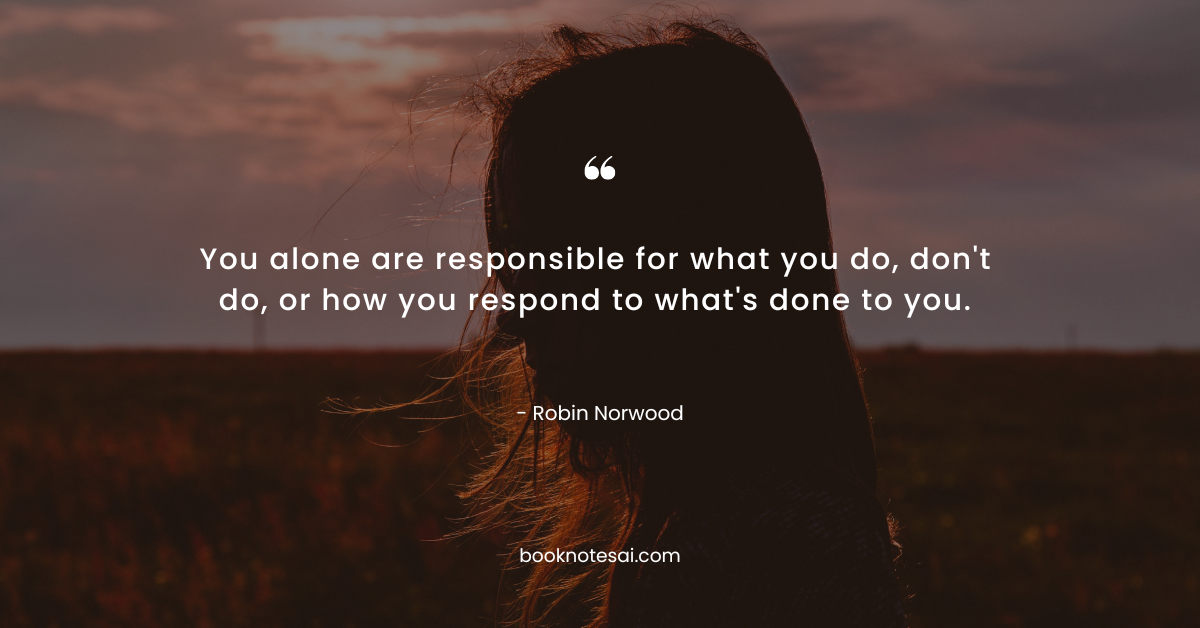Listen To This Post
Women Who Love Too Much Summary: When You Keep Wishing and Hoping He’ll Change. Understanding and Overcoming Unhealthy Relationship Patterns.

This is a book summary for Women Who Love Too Much by Robin Norwood. The essential information is structured to be straightforward, useful, and valuable, all while helping you save plenty of time.
Introduction: Why this book?
- Women Who Love Too Much by Robin Norwood explores the pervasive issue of women who continually invest in relationships hoping for change.
- Understanding the concepts presented in this book can provide invaluable insights into relationship patterns and offer avenues for personal growth.
- By delving into this book, you’ll gain clarity on destructive relationship dynamics and learn to empower yourself towards healthier connections.
Women Who Love Too Much Summary
- Women Who Love Too Much explores the tendencies of individuals to become entangled in relationships where their needs are consistently overlooked or invalidated.
- Through compelling anecdotes and psychological analysis, Norwood sheds light on the underlying reasons behind this self-destructive behavior.
- The book provides practical strategies for recognizing these patterns, establishing healthy boundaries, and fostering self-love and empowerment.
- Norwood emphasizes the importance of self-awareness and accountability in breaking free from codependency and cultivating fulfilling relationships.
- By offering a roadmap to healing and transformation, Women Who Love Too Much empowers readers to break free from toxic relationship patterns and pursue a life of authenticity and emotional well-being.
💡 5 Big Ideas
- Recognizing Codependency: Norwood emphasizes the significance of recognizing and acknowledging codependent tendencies, enabling individuals to take the first step towards healing.
By understanding the roots of codependency, you can begin to reclaim your autonomy and self-worth, fostering healthier relationships. - Establishing Boundaries: Learning to establish and enforce boundaries is essential for individuals trapped in toxic relationships.
Norwood underscores the importance of setting limits to protect your emotional well-being and cultivate relationships based on mutual respect. - Prioritizing Self-Care: Central to Norwood’s message is the necessity of prioritizing self-care and nurturing your own emotional needs.
By practicing self-compassion and self-love, you can break free from the cycle of seeking validation from external sources. - Embracing Authenticity: Authenticity lies at the heart of healing from codependency, as Norwood advocates for embracing your true self and honoring your desires and values.
By embracing authenticity, you can cultivate genuine connections and lead a more fulfilling life. - Breaking the Cycle: Norwood offers hope for breaking free from toxic relationship patterns by providing practical tools and strategies for personal growth.
By committing to self-reflection and emotional healing, you can break the cycle of codependency and create healthier, more fulfilling relationships.
In essence, Women Who Love Too Much teaches us to prioritize self-awareness, establish boundaries, practice self-care, embrace authenticity, and break free from toxic relationship patterns to cultivate a life of empowerment and emotional well-being.
Powerful Quotes
- “You alone are responsible for what you do, don’t do, or how you respond to what’s done to you.”
This quote emphasizes personal accountability and empowerment. - “Giving advice to others keeps the focus off yourself, and may feel helpful to them, but the truth is, it is negative and self-serving.”
This quote highlights the pitfalls of codependent behavior. - “The fantasy bond is a structure that permits us to psychologically merge with another person while remaining safely insulated from their real demands.”
This quote exposes the illusion of intimacy in codependent relationships. - “We recreate what we know, over and over again.”
This quote underscores the pattern of repeating dysfunctional relationship dynamics. - “The price you pay for having your needs met is steep: your self-respect.”
This quote elucidates the cost of sacrificing one’s self-respect in pursuit of validation. - “Healing requires the courage to face reality and do the work necessary to effect change.”
This quote emphasizes the courage and commitment required for personal transformation. - “The people we are in relationships with are always a mirror, reflecting our own beliefs, and simultaneously we are mirrors reflecting theirs.”
This quote highlights the reciprocal nature of relationships and the opportunity for self-reflection. - “To the degree that you abandon yourself, you will attract those who will abandon or betray you.”
This quote underscores the importance of self-love and self-respect in attracting healthy relationships. - “The child who is not loved by his or her own parents, and grows up feeling unlovable, is virtually defenseless against the charms of a lover who wishes to exploit those feelings.”
This quote explores the impact of childhood experiences on adult relationship patterns. - “We cannot choose our parents, but we can choose to heal ourselves.”
This quote offers hope and agency in overcoming the wounds of the past.
One Reason To Read This Book:
Understanding the dynamics of toxic relationships and learning strategies for healing and empowerment can profoundly impact your emotional well-being and relationship satisfaction.
Who should I recommend Women Who Love Too Much Summary to?
If you or someone you know has struggled with patterns of codependency or toxic relationships, Women Who Love Too Much offers invaluable insights and guidance for breaking free from destructive cycles and reclaiming self-worth.
This summary is especially relevant for individuals seeking to foster healthier relationships and cultivate emotional well-being.
Recommendations:
- “Codependent No More” by Melody Beattie
- “The Gifts of Imperfection” by Brené Brown
- “Attached: The New Science of Adult Attachment and How It Can Help You Find – and Keep – Love” by Amir Levine and Rachel Heller
- “The Emotionally Abusive Relationship: How to Stop Being Abused and How to Stop Abusing” by Beverly Engel
- “The Body Keeps the Score: Brain, Mind, and Body in the Healing of Trauma” by Bessel van der Kolk, M.D.
This summary serves as a complimentary guide to the reviewed title Women Who Love Too Much, offering key insights. For a deeper understanding, we encourage you to explore the full book.


